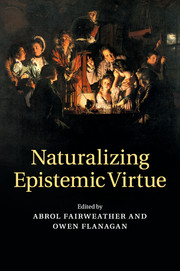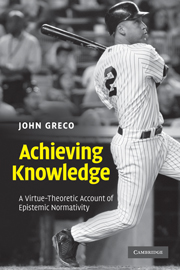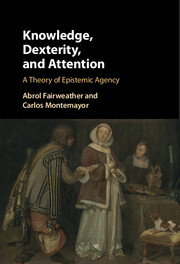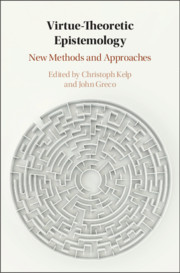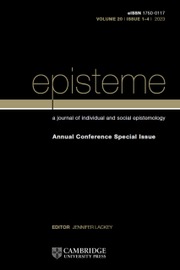Naturalizing Epistemic Virtue
An epistemic virtue is a personal quality conducive to the discovery of truth, the avoidance of error, or some other intellectually valuable goal. Current work in epistemology is increasingly value-driven, but this volume presents the first collection of essays to explore whether virtue epistemology can also be naturalistic, in the philosophical definition meaning 'methodologically continuous with science'. The essays examine the empirical research in psychology on cognitive abilities and personal dispositions, meta-epistemic semantic accounts of virtue theoretic norms, the role of emotion in knowledge, 'ought-implies can' constraints, empirically and metaphysically grounded accounts of 'proper functioning', and even applied virtue epistemology in relation to education. Naturalizing Epistemic Virtue addresses many core issues in contemporary epistemology, presents new opportunities for work on epistemic abilities, epistemic virtues and cognitive character, and will be of great interest to those studying virtue ethics and epistemology.
- Proposes for the first time a sustained examination of naturalism in virtue epistemology
- Equally balanced between theoretical and empirical approaches to epistemology
- Opens new directions for virtue epistemology research
Product details
March 2017Paperback
9781316642832
282 pages
230 × 153 × 15 mm
0.42kg
Available
Table of Contents
- 1. Introduction: naturalized virtue epistemology? Abrol Fairweather and Owen Flanagan
- 2. Functions, epistemic warrant and natural norms Peter Graham
- 3. The epistemic ought Ram Neta
- 4. Naturalism and the norms of inference Carrie Ichikawa-Jenkins
- 5. Indirect epistemic teleology explained and defended David Copp
- 6. Moral virtues, epistemic virtues, and the big five Christian Miller
- 7. Epistemic dexterity: a Ramseyian account of agent-based knowledge Abrol Fairweather and Carlos Montemayor
- 8. Re-evaluating the situationist challenge to virtue epistemology Duncan Pritchard
- 9. Stereotype threat and intellectual virtue Mark Alfano
- 10. Acquiring epistemic virtue Heather Batally
- 11. Virtue and the fitting culturing of the human critter David Henderson and Terence Horgan
- 12. Expressivism and convention-relativism about epistemic discourse Alan Hazlett.

